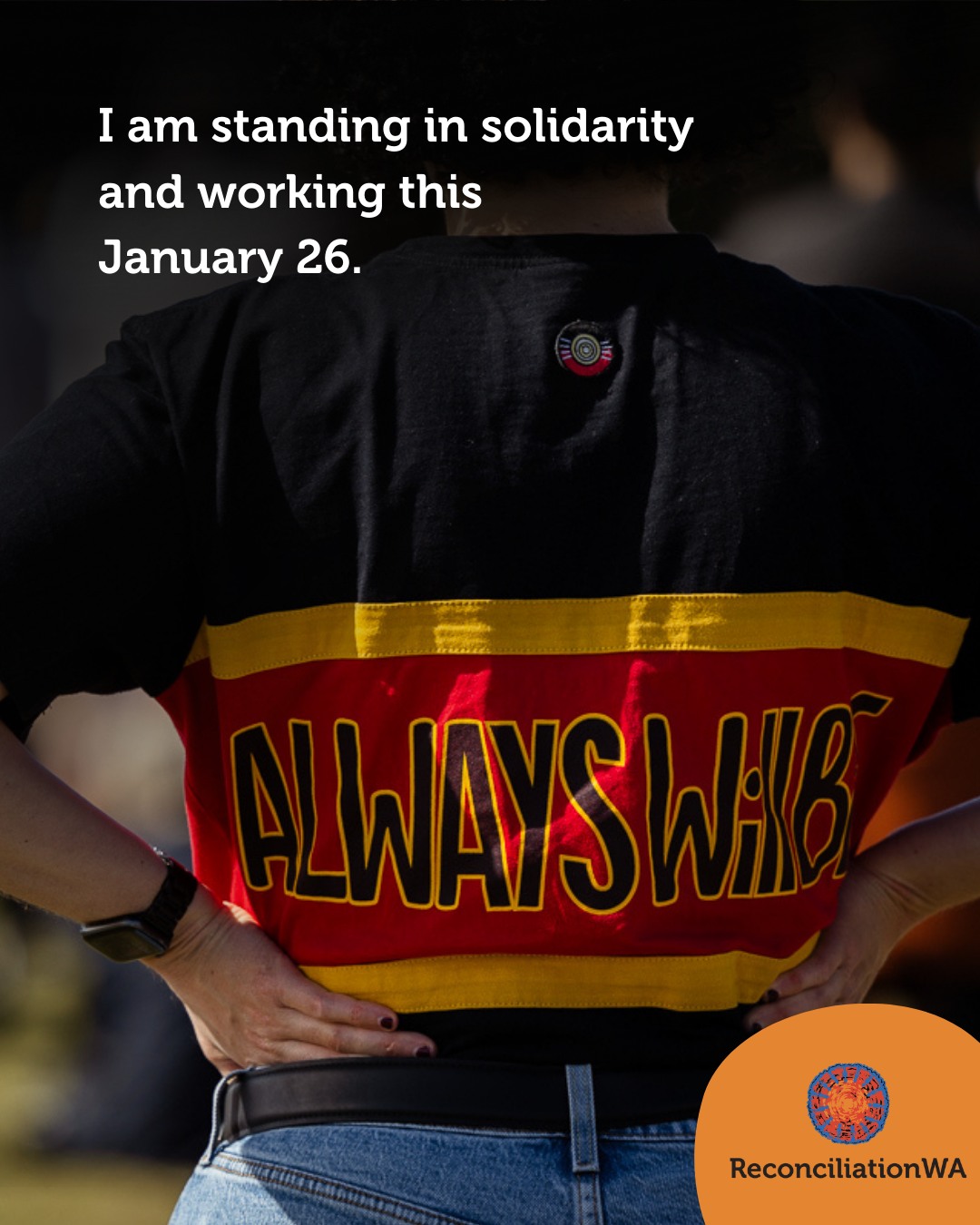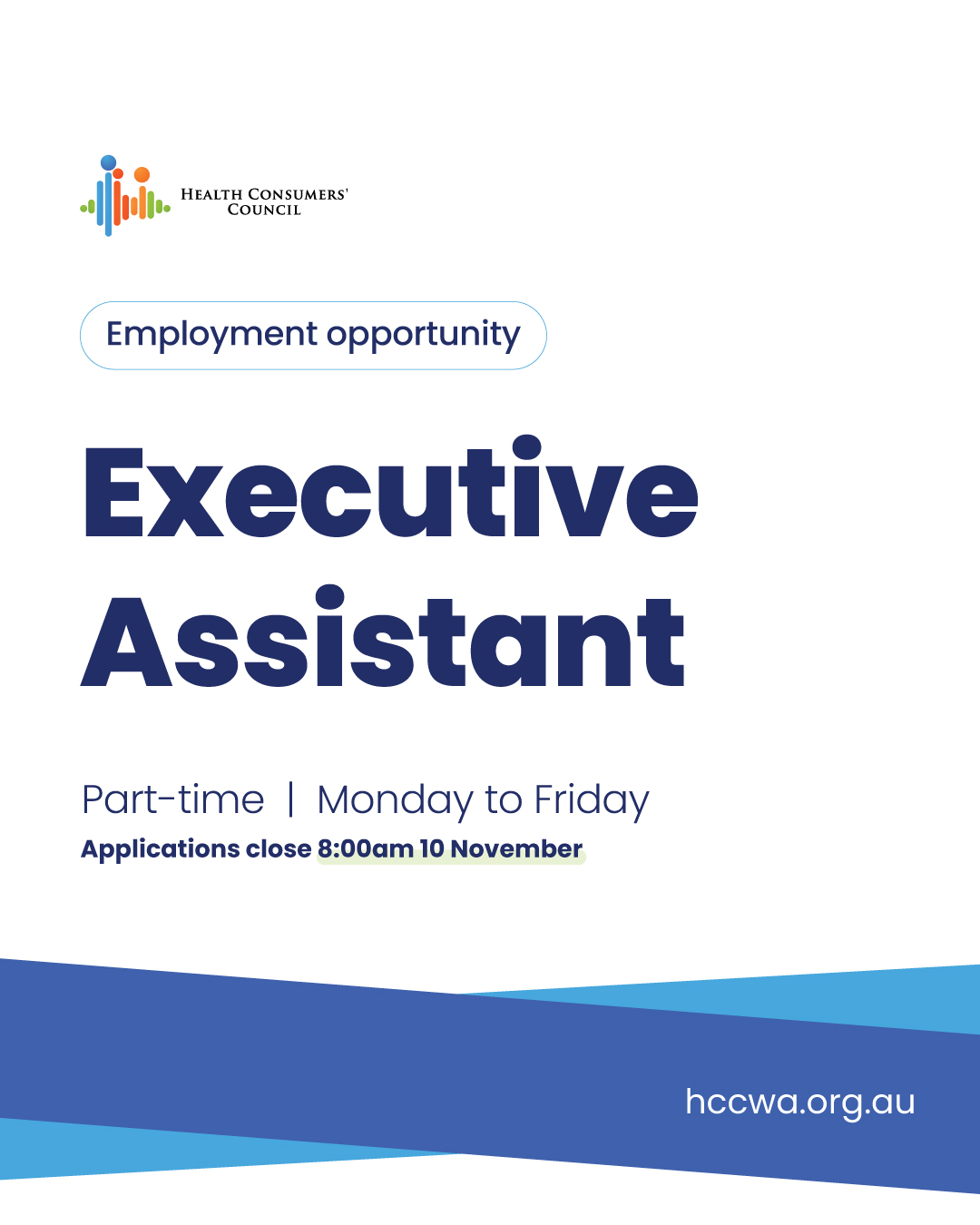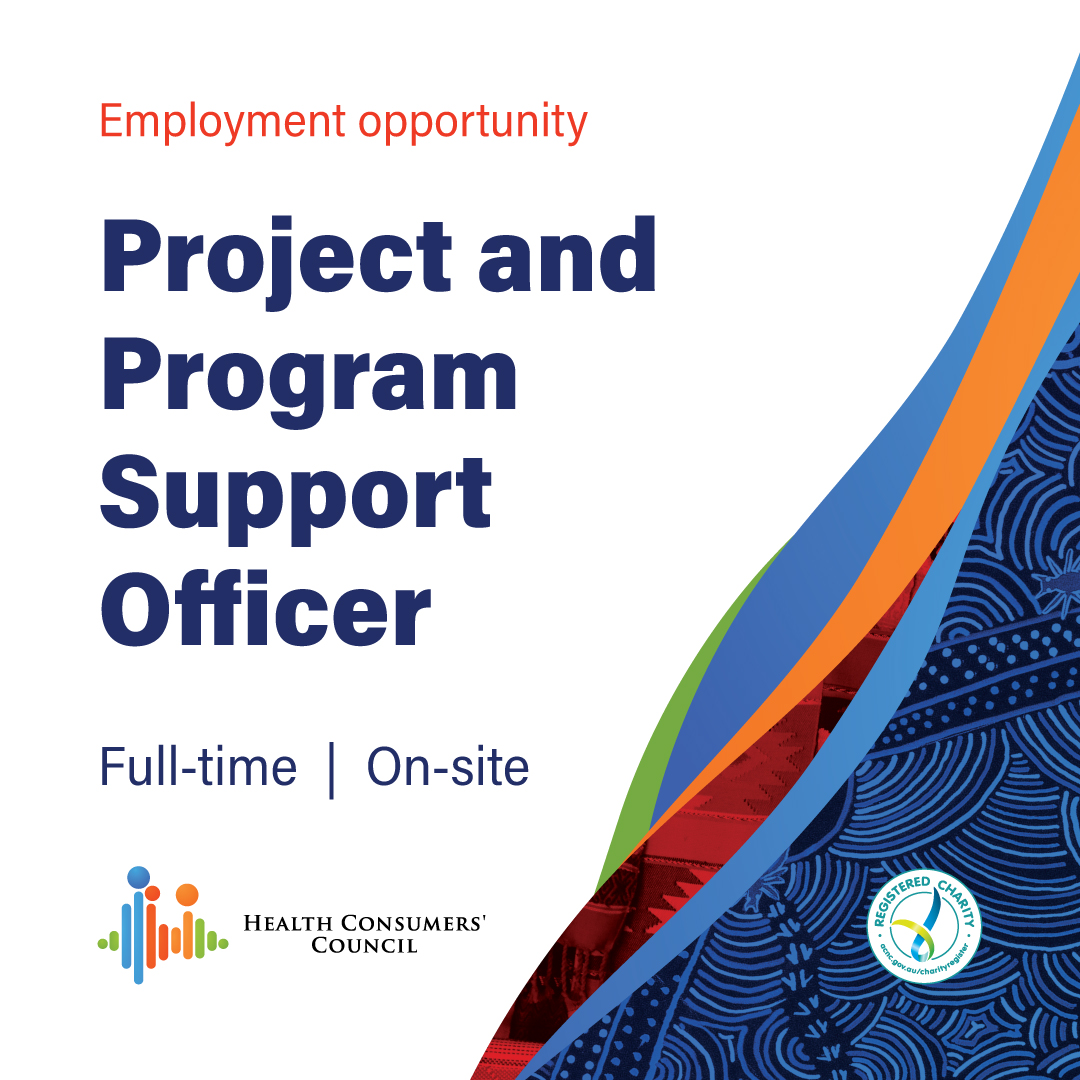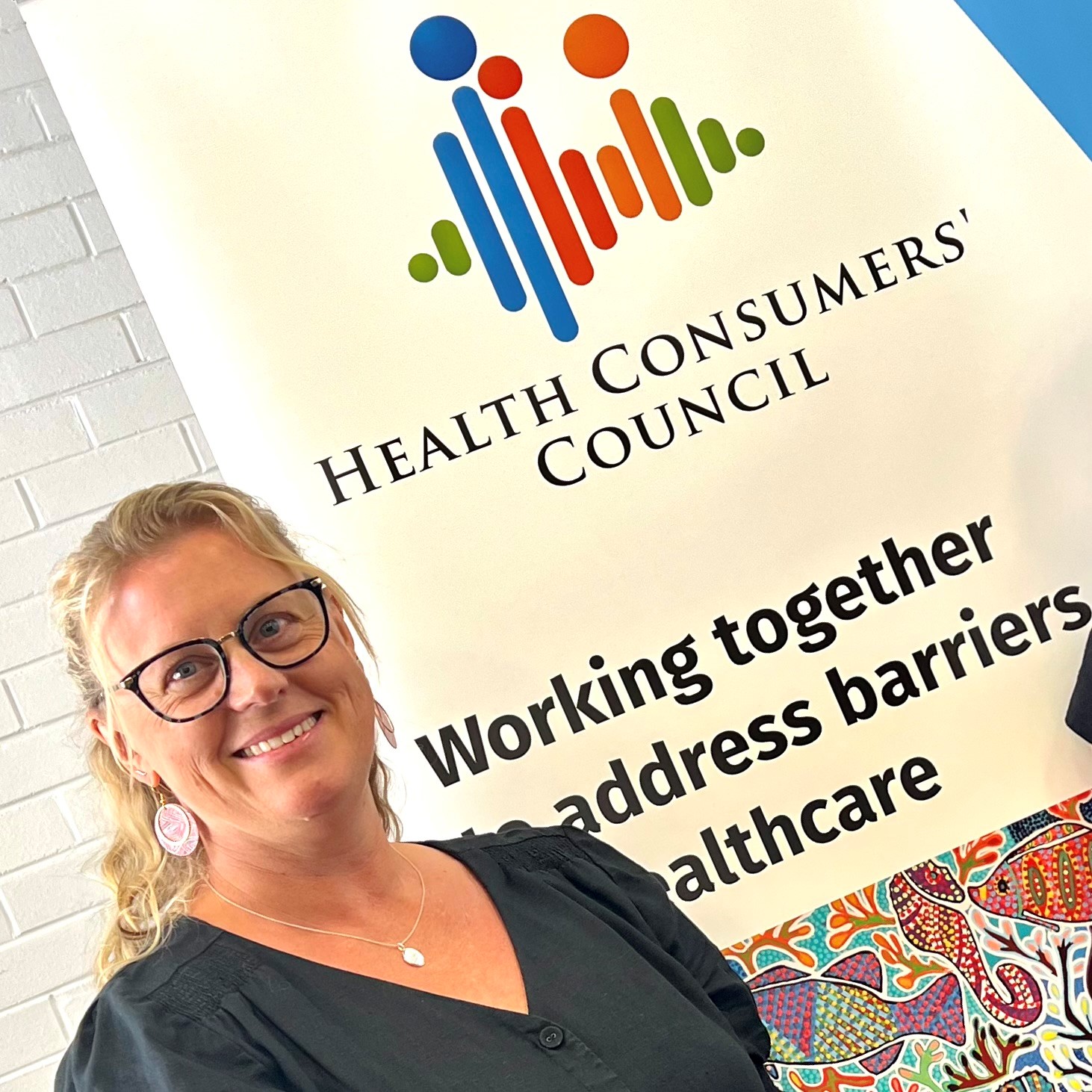Link to a PDF copy of our response is here:
2022 Response to WA Abortion Reform Consultation
Re: Request for Submission and Sharing of the Abortion Reform Consultation Process
Health Consumers’ Council thanks you (Dr Robertson) for reaching out to us and requesting our engagement with this consultation on Abortion Legislation in WA. We agree that these laws are long overdue for revision and reform and we have shared the consultation with our networks.
The Health Consumers’ Council of WA unequivocally stands for the rights of all people to access free, decriminalised, safe, timely and compassionate abortion care as part of essential healthcare and support the removal of access to abortion from the Criminal Code.
Earlier in the year, we added our signature to the Australia position statement on the Roe v Wade decision in the US published by Children by Choice, and welcomed the WA Minister for Health speaking on reproductive rights and equitable access to abortion for women and people with uteruses across WA, and we have been welcoming of the safe access zone legislation.
We know that accessing free, high quality, comprehensive abortion care in WA is difficult for many people. Factors including someone’s suburb or town, finances, the availability of clear, accessible, and culturally appropriate health information, and the lack of public services all impact on someone’s ability to access the care they need. We also know from MSI Australia that First Nations’ peoples, trans and gender diverse peoples, members of migrant and refugee communities, people on temporary visas, and people with disabilities can face additional barriers to abortion care that are further impacted by age, economic status, stigma, and discrimination. We affirm everyone’s individual right to choose what is best for them. Access to abortion is not a moral or religious debate, it is a healthcare right that centers on choice, respect, and self-determination.
Health Consumers’ Council knows from our engagement with the WA community that all stated options in question 9 have been and continue to be barriers to accessing abortion, particularly for people who may be marginalised, who are young, who are Aboriginal, who are Culturally & Linguistically Diverse and who are part of the LGBTQIA+ community. We anticipate that even with the proposed amendments, there will continue to be barriers until more is done to address timely access to clinical assessments, medical practitioner’s conscientious objections, health literacy/accessibility of relevant, plain-language information, financial impact for anyone not able to access bulk-billed abortion services, rights around age & access, lack of service provision throughout the state and especially lack of remote/rural services. We also recognise and stand with current abortion providers who recognise the stated barriers for service provision as stated in question 12.
Health Consumers’ Council would also like to respond to and note some nuances around the remaining submission questions:
Question Thirteen – While we agree that the need for mandatory counselling should be removed for this essential healthcare service, we s also agree that every person should still be able to easily access timely, cost-effective counselling and support around abortion if they choose.
Questions Fourteen & Fifteen – In order to increase equitable access to safe abortion, we believe that, in the same way any other form of healthcare treatment or procedure is approved, only one medical practitioner should be needed for a person to access an abortion. We also believe that if a medical practitioner should conscientiously object, they should be required to refer on in a timely manner to someone confirmed to affirm abortion, with tight processes around this stated publicly. For example, a clear and publicly available procedure that people seeking abortion can easily access and follow confidently when advocating for their rights. We believe that abortion care is healthcare and as such, access to abortion is a healthcare right. Health practitioners should do everything in their power to advocate and uphold the choices of their patients wanting to access abortion, whether they agree morally or not.
Questions Sixteen & Seventeen – We support increasing the gestational age to 24 weeks, while also noting the nuances and community concern for issues like eugenics and Disabled People’s right to life. We believe that increases in gestational limits are much needed. Less than 1% of abortions occur at later pregnancy gestations, they are experienced people who face complex situations, and they need to have kind and compassionate care (MSI, 2022). As viability of a pre-term foetus is often debated, and no universal consensus has been reached, this can be an ethical consideration of many people in Australia. However, access to abortion is not equitable, and therefore extensions on gestational limits are vital to uphold the right to choose and access health care. If the pregnant person chooses an abortion at any stage, there should be no involvement from anyone besides the pregnant person and their healthcare provider/s, with appropriate consultations around specific, high-risk procedures. We strongly support the repeal of the Ministerial ‘Ethics’ Panel on abortion, and we advocate for clear processes to be implemented and publicly available for the proposed second medical practitioner consultation for late term abortion.
Question Eighteen – We believe that there should be no requirement for Ministerial approval for a health service to perform abortions, provided the health services are equipped to do so safely. Further, we believe that any suitably equipped health service receiving public funding should be required to provide timely, legal, high-quality, free, and safe access to abortions at any stage, for anyone living or residing in Western Australia. We also note that repealing the Ministerial involvement via approval and panels will hopefully increase the availability of free abortions and the prevalence of services providing this vital healthcare, and urge the WA Government to invest more into making abortion accessible in every way.
Health Consumers’ Council provide individual advocacy to consumers of healthcare across WA and will continue to advocate individually and systemically for equitable access to all healthcare, including access to timely, safe, free, and legal abortion, for everyone living in WA, especially those who have been marginalised. We will continue to advocate with community for improved access to information and access to reproductive rights, contraception, culturally competent care, and gender and sexuality affirming care.
The Health Consumers’ Council welcomes the opportunity to assist further in consulting with community and providing advice to policy makers to enable much needed change to abortion laws in WA.
We acknowledge Aboriginal and Torres Strait Islander peoples and communities as the Traditional Custodians of the land we work on, specifically the Wadjuk people of the Noongar nation, and pay our respects to Elders past, present, and emerging. We recognise that sovereignty was never ceded and commit to continuing advocacy for anti-racism in the health sector.











